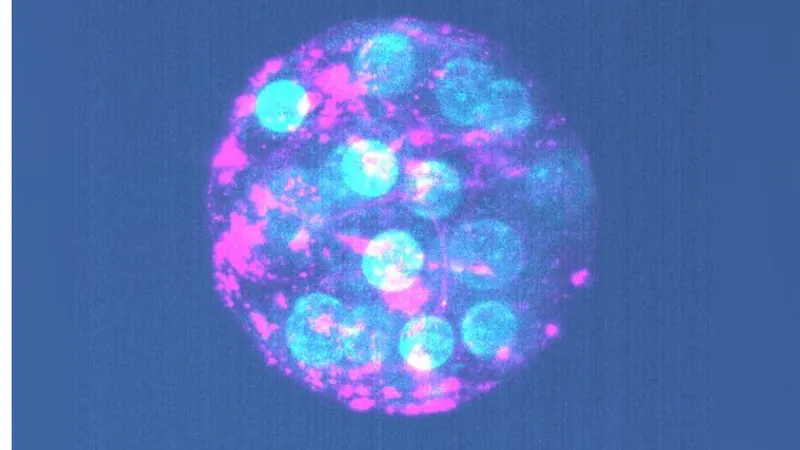
The Surprising Chaos of Early Mammal Embryonic Development: What a New Atlas Reveals!
2024-10-10
Author: Sarah
Scientists have unveiled a groundbreaking "atlas" depicting the intricate journey of early embryonic development in mammals, from a single fertilized egg to a fully formed organism. This new research offers profound insights into the unpredictable nature of early cell division, challenging long-held assumptions about embryogenesis.
The study reveals that the early stages of mammalian development—including the initial divisions of the fertilized egg from one cell to two, then four, and to eight—are astonishingly chaotic. Unlike well-regulated organisms such as the roundworm Caenorhabditis elegans, where early development follows predictable patterns, mammal embryos showcase a degree of randomness. Each cell division occurs with varied timing and orientation, leading to a remarkable diversity in embryo shapes among individuals of the same species.
However, at the critical threshold of eight cells, a remarkable transformation takes place. According to advanced computational modeling, this chaotic phase gives way to a more organized approach as the cells begin to adhere to one another efficiently. This transition is pivotal, as it shapes the embryo into a more structured form, setting the stage for the complex process of morphogenesis, during which all tissues and organs are formed.
The findings were published in a study on October 10th in the prestigious journal *Science*, based on extensive laboratory experiments conducted with mouse, rabbit, and monkey embryos. The researchers emphasize that further investigations are necessary to determine whether this pattern holds true for human embryos as well.
Should this chaotic-to-ordered process be validated in human embryos, its implications could be revolutionary for fertility treatments. Edouard Hannezo, a biophysics professor and co-author of the study, highlighted in correspondence with *Live Science* that the insights gleaned from this research might significantly enhance in-vitro fertilization (IVF) techniques. By understanding the quality of embryos more precisely, clinicians could potentially select the healthiest embryos for implantation, thereby increasing the likelihood of successful pregnancies.
This atlas not only deepens our understanding of mammalian embryonic growth but also opens new avenues for improving reproductive health. The complexity of life's beginnings is more intricate than ever imagined—how might this knowledge transform our approach to fertility and developmental biology in the future?
Stay tuned for more updates as researchers continue to unravel the mysteries of early development!
 Brasil (PT)
Brasil (PT)
 Canada (EN)
Canada (EN)
 Chile (ES)
Chile (ES)
 España (ES)
España (ES)
 France (FR)
France (FR)
 Hong Kong (EN)
Hong Kong (EN)
 Italia (IT)
Italia (IT)
 日本 (JA)
日本 (JA)
 Magyarország (HU)
Magyarország (HU)
 Norge (NO)
Norge (NO)
 Polska (PL)
Polska (PL)
 Schweiz (DE)
Schweiz (DE)
 Singapore (EN)
Singapore (EN)
 Sverige (SV)
Sverige (SV)
 Suomi (FI)
Suomi (FI)
 Türkiye (TR)
Türkiye (TR)